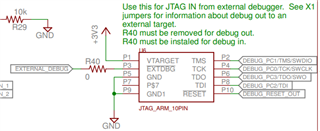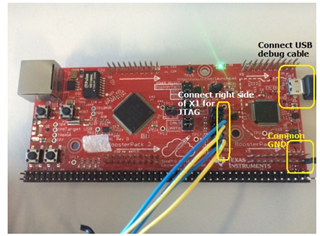Part Number: TM4C129ENCPDT
Other Parts Discussed in Thread: EK-TM4C1294XL, LMFLASHPROGRAMMER, TM4C1294NCPDT
I am having problems with the ICDI JTAG interface damaging both the ICDI programmer and my TM4C129ENCPDT processor.
I am debugging updating a bootloader in my own CODE at Flash address 0.
After I program the through a serial port and then update the flash, the next connect with ICDI fails.
I have now had two of the ICDI boards fail and two of the TM4C129ENCPDT processors fail.
As the only connection between these is the ICDI JTAG interface, I can only conclude that the JTAG pins on the processor and the output pins on the ICDI board are somehow damaging each other.
I am working on the assumption that a series resistor onto the interface should eliminate this damage, which I am assuming is caused by the two outputs fighting each other and damaging the pin / processor.
Has anyone else had this issue, if so what value series resistor worked for you?



